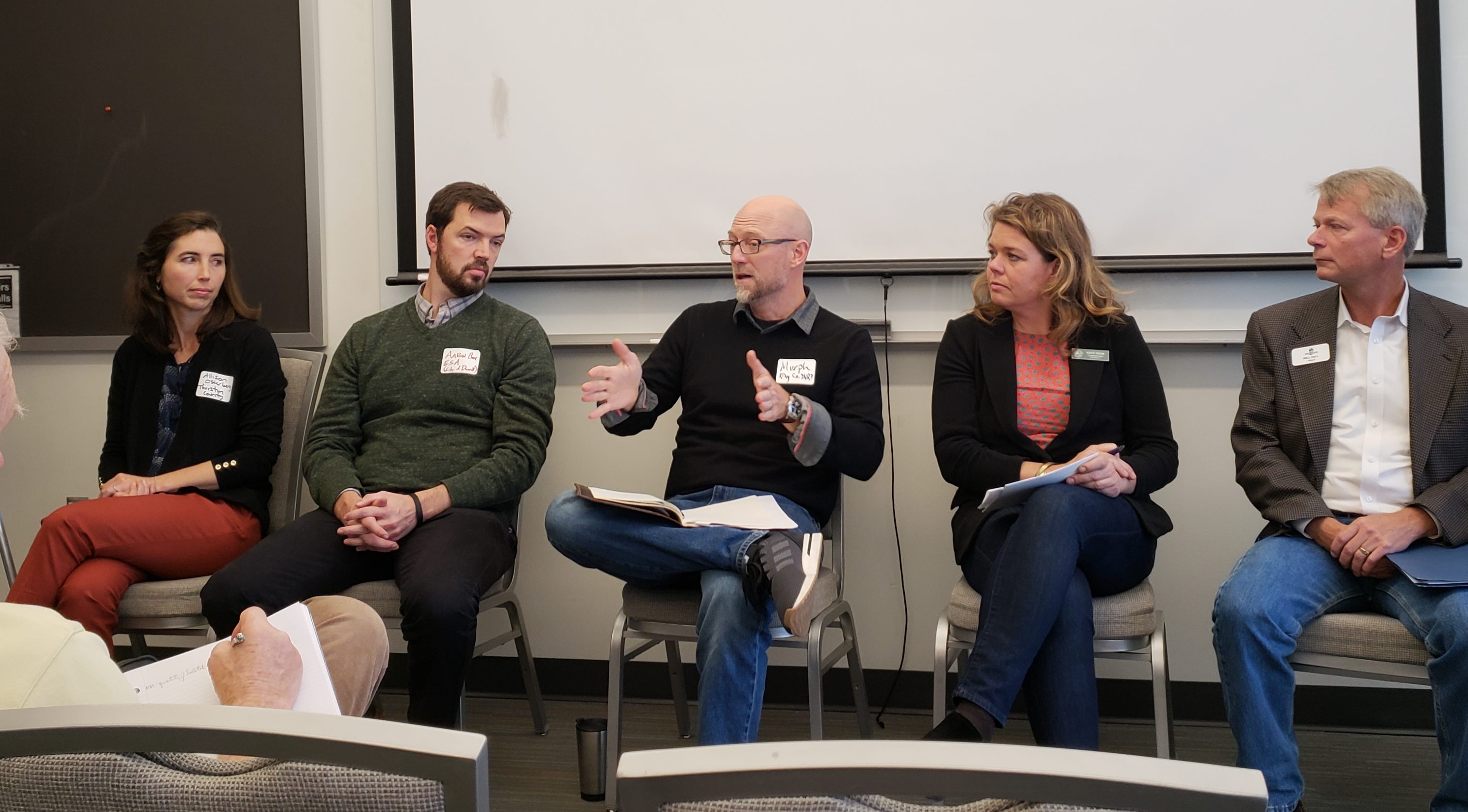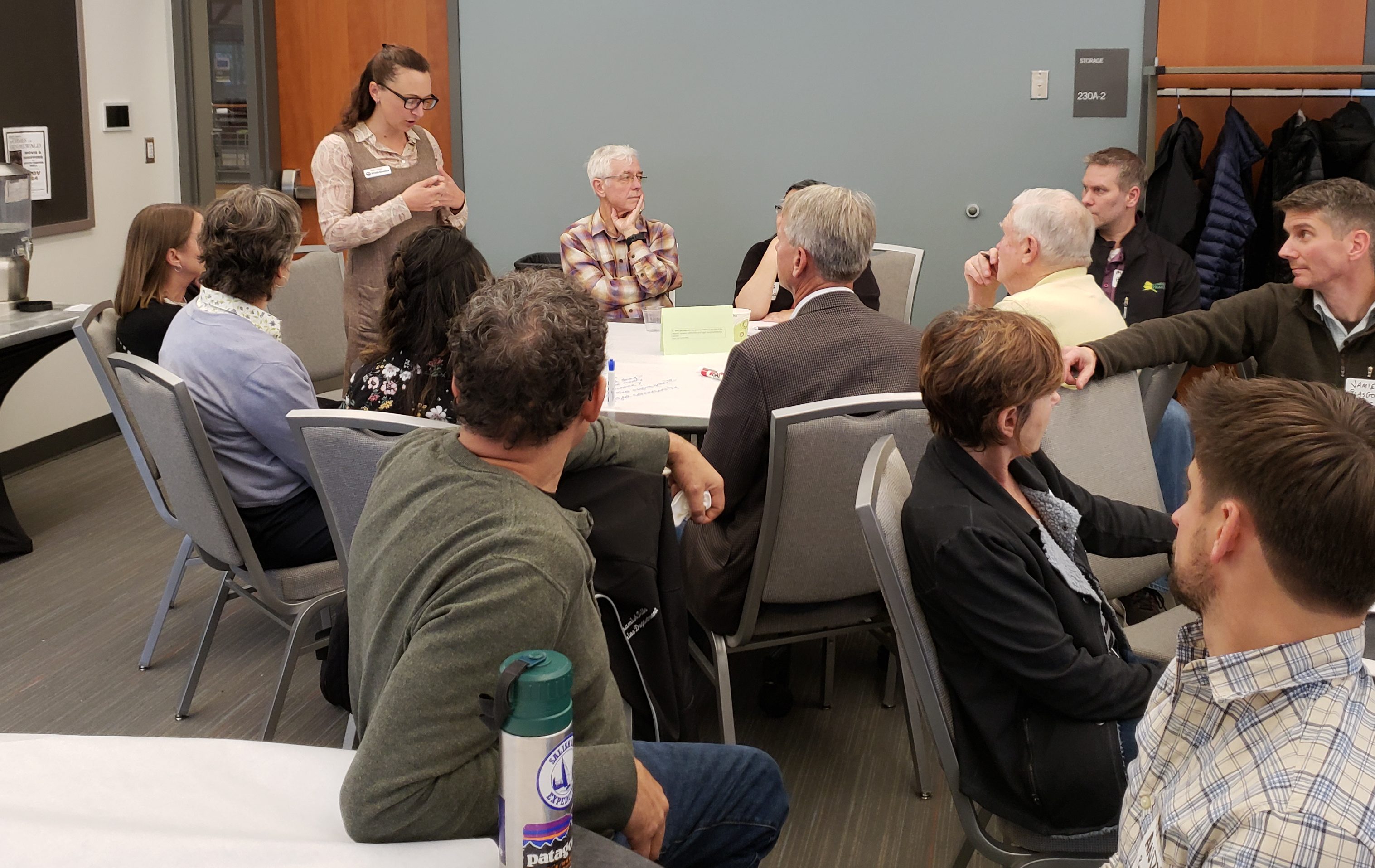The Watershed Lead Organization and Habitat Strategic Initiatives (with support from the Stormwater Strategic Initiative) invited a few recipients of the National Estuary Program funds to discuss their work relevant to long-range land use planning in support of conservation in Puget Sound. The presenters and panelists were selected because of their innovative approaches to utilizing existing regulations better or going above and beyond the current regulatory requirements to protect and restore habitat and watershed processes.

During the workshop, participants and presenters discussed ways that jurisdictions throughout Puget Sound have protected some of the lands they value most and how those lands were identified. This workshop built off of interest from various partner organizations to host shared learning opportunities and innovate effective ways to do long-range land use planning. Many of the challenges to protect valuable lands from ineffective uses are common throughout Puget Sound. The presenters listed below and small group topics were intended to build a shared understanding of those challenges and innovative techniques to overcome them.
Presentations Round 1: Tools that maximize regulatory effectiveness
- Jamie Glasgow- Protecting Critical Areas to Protect Puget Sound, Wildfish Conservancy
- Paul Williams – Permit Tracking to Assess and Reduce Cumulative Habitat Loss, Suquamish Tribe
- Ken Pierce- A New View of Shoreline Terrestrial Change, Wash Department of Fish and Wildlife
- Keith Folkerts- High Resolution Change Detection to Maximize Effectiveness of Critical Area Ordinances, Wash Department of Fish and Wildlife
Presentations Round 2: Enabling conditions for innovative long-range land use decision-making
- Allison Osterberg: Enabling Conditions: Watershed Science Local Policy, Thurston county
- Aaron Booy: Watershed Planning for Multiple Objectives in the City of Duvall, ESA consulting
- Mike Murphy: Market-Based Conservation Programs in King, King County Water & Land Resources Division
- Kate Dean: Preparing for Climate Change on the North Olympic Peninsula, Jefferson County
- Will Hall: Reducing the Impact of Growth by Changing a Post-War Suburb into a Sustainable City, City of Shoreline
Small Group Discussion
Workshop participants then broke into small groups for conversations on the topics listed below:
- What’s working: How can the tools, approaches, and/or successes be institutionalized? What are some of the cases or lessons you know about from innovative attempts to solve standard land use management issues?
- Data and tools: What are the really useful data, analyses, and tools needed to support long-term land use planning?
- Regulatory effectiveness: What would improve effectiveness? What are the limitations of current regulations?
- Working lands: What are the supported and understated values of agricultural lands in the long-range land use management framework?
- Solutions: What is the role of the regional recovery community and Puget Sound Partnership boards?

Want to learn more?
Click the link for a copy of the presentations, or a copy of the panel discussion and small group notes.
What’s next?
The workshop planning team will use the information gathered in this workshop to identify a few ways the regional planning teams (like the Habitat Strategic Initiative Advisory Team) and partners can meaningfully support the Puget Sound jurisdictions to use the tools and enabling conditions available to their fullest extent.

